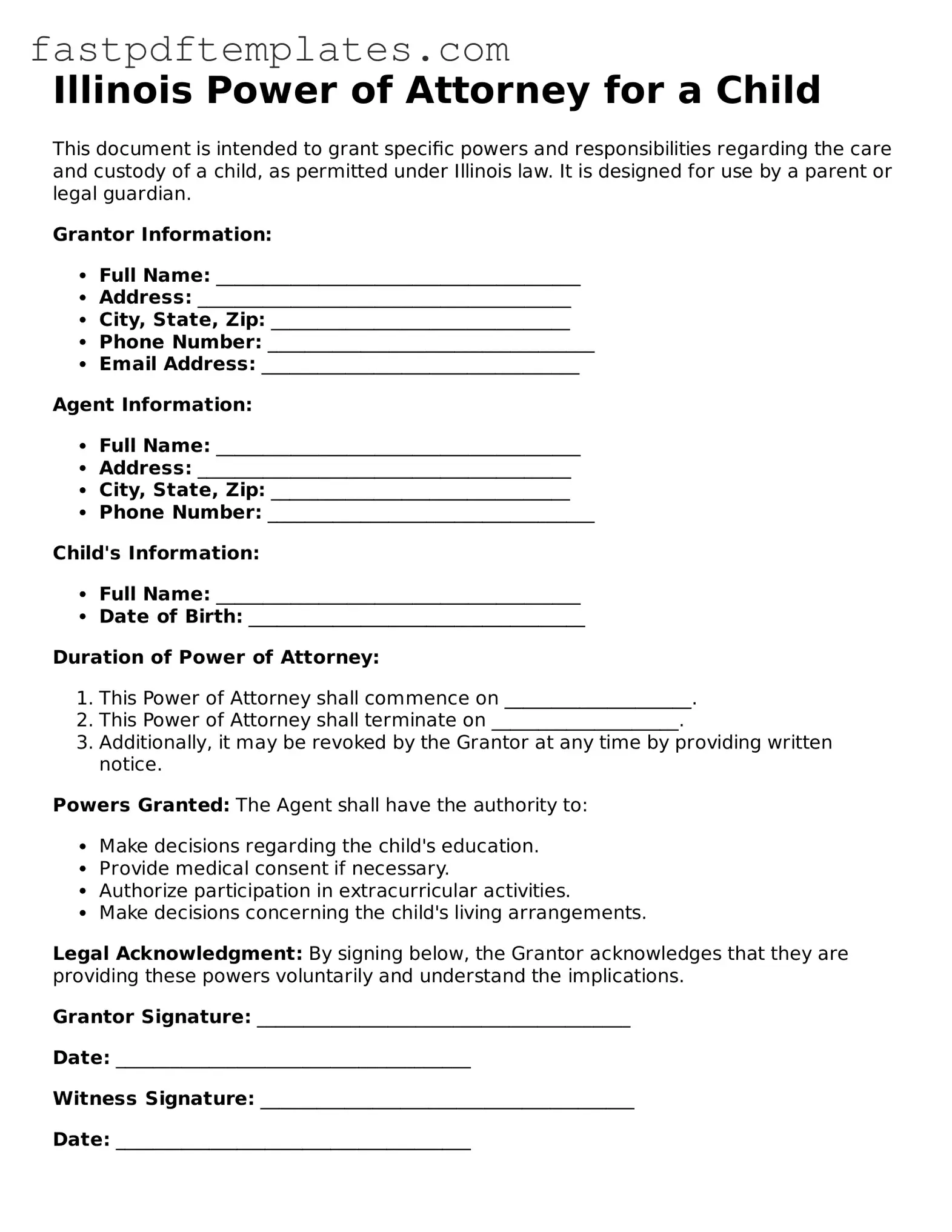The Illinois Power of Attorney for a Child form is similar to a General Power of Attorney. Both documents grant authority to an individual to make decisions on behalf of another person. In the case of a General Power of Attorney, this authority can encompass a wide range of decisions, including financial and medical matters. However, the Power of Attorney for a Child specifically focuses on decisions related to the care and welfare of a minor, ensuring that the child’s needs are prioritized in the absence of their parents or guardians.
Another similar document is the Healthcare Power of Attorney. This form allows an individual to designate someone to make medical decisions on their behalf if they become unable to do so. Like the Power of Attorney for a Child, the Healthcare Power of Attorney emphasizes the importance of having a trusted individual who can act in the best interest of another person. However, it is specifically tailored for health-related decisions rather than the broader scope of child care.
The Guardianship Agreement shares similarities with the Power of Attorney for a Child. Both documents involve the appointment of an individual to take care of a child. However, a Guardianship Agreement typically establishes a more permanent arrangement, often requiring court approval. In contrast, the Power of Attorney for a Child is generally a temporary solution that allows a parent to delegate authority without the need for judicial intervention.
A Custody Agreement also resembles the Power of Attorney for a Child. Both documents deal with the care and upbringing of a child. However, a Custody Agreement is often a legal determination made during divorce or separation proceedings, outlining where the child will live and who will make significant decisions regarding their upbringing. The Power of Attorney for a Child, on the other hand, is more flexible and can be established without court involvement, allowing for immediate and practical arrangements for a child’s care.
The Child Care Authorization form is another document akin to the Power of Attorney for a Child. This form permits a parent or guardian to authorize another individual to make decisions regarding a child’s daily care, including educational and medical needs. While both documents serve to ensure a child’s well-being, the Child Care Authorization is often used for short-term situations, such as when a parent is traveling, whereas the Power of Attorney for a Child can cover a broader time frame.
The Temporary Guardianship form is also comparable to the Power of Attorney for a Child. Both documents allow for the designation of someone to care for a child in the absence of their parents. However, a Temporary Guardianship typically requires court approval and is often used in situations where parents are unable to care for their child for an extended period. The Power of Attorney for a Child is usually quicker to establish and can be enacted without legal proceedings.
The Adoption Agreement has similarities with the Power of Attorney for a Child in that both involve the care and custody of a child. However, adoption is a permanent legal process that transfers parental rights from biological parents to adoptive parents. The Power of Attorney for a Child does not terminate parental rights; instead, it temporarily delegates authority to another individual while maintaining the original parent's rights.
Lastly, the Special Needs Trust can be considered similar in that it addresses the welfare of a child, particularly those with disabilities. This document allows for the management of assets for the benefit of a child with special needs without jeopardizing their eligibility for government assistance programs. While the Power of Attorney for a Child focuses on decision-making authority, the Special Needs Trust is concerned with financial support and long-term care planning.

